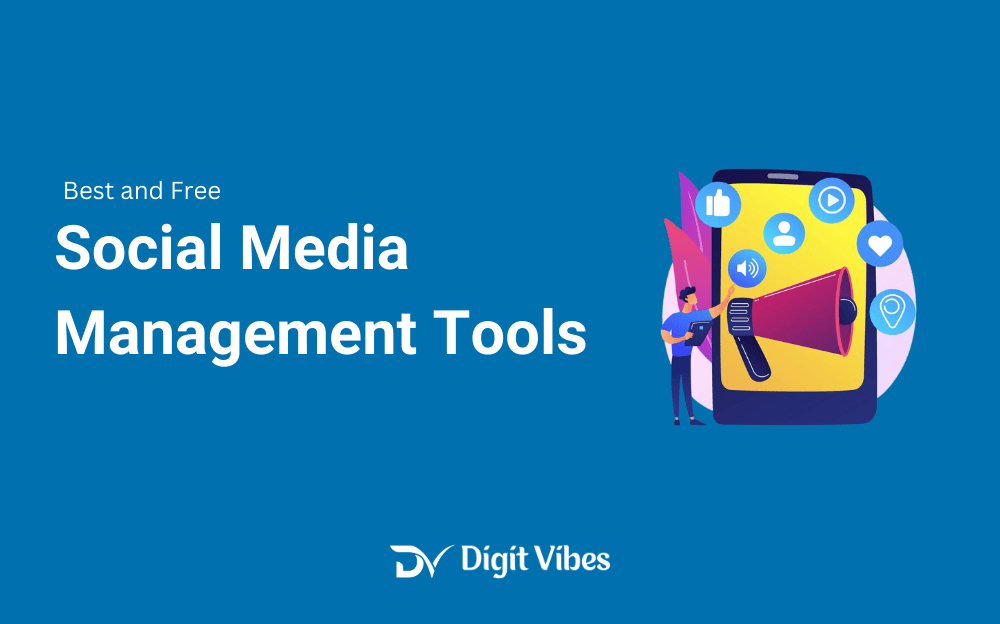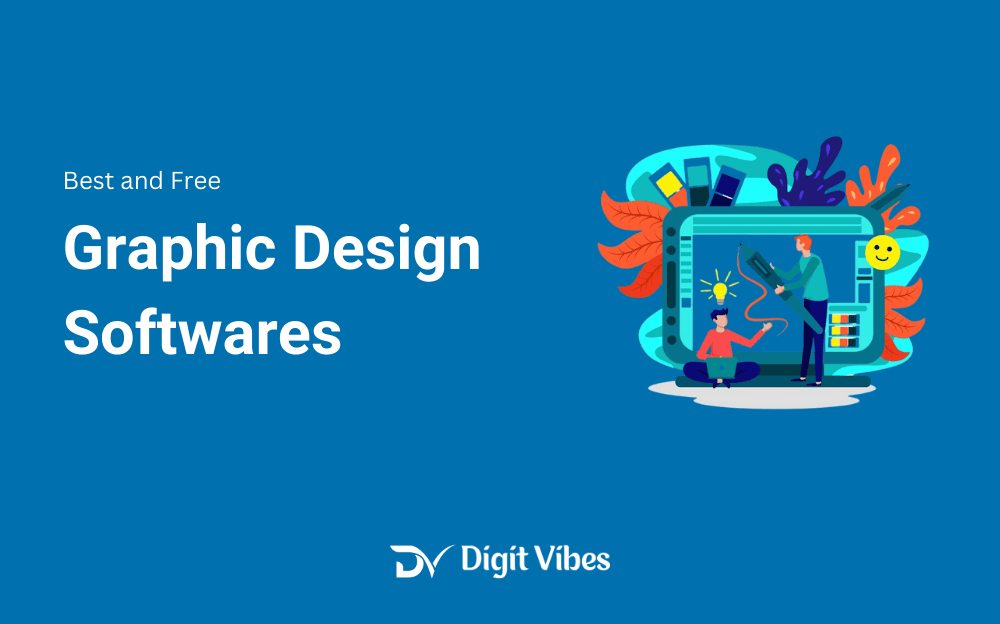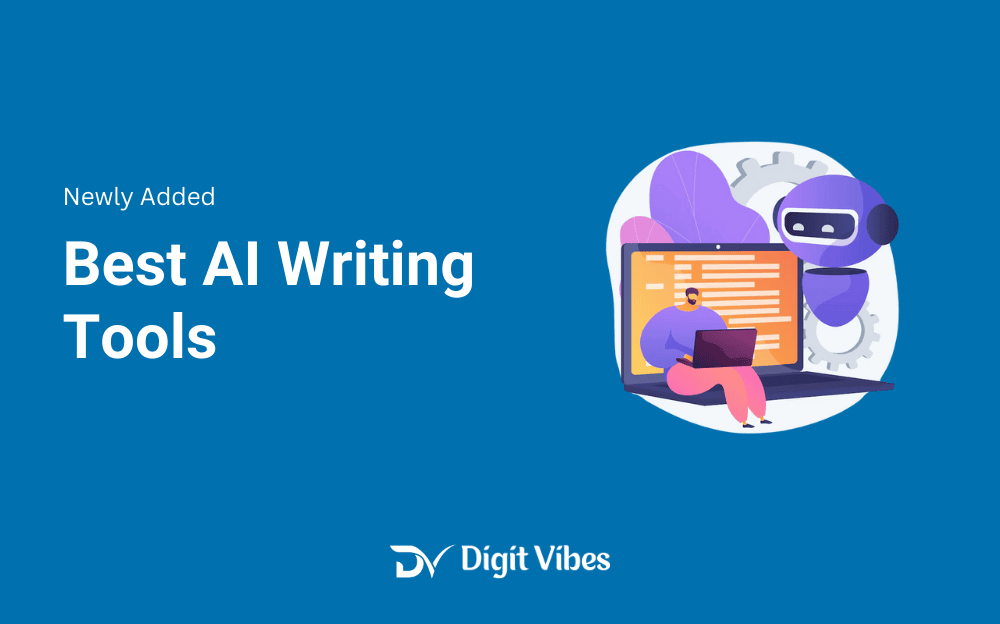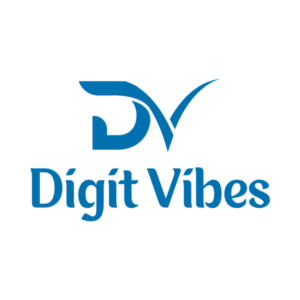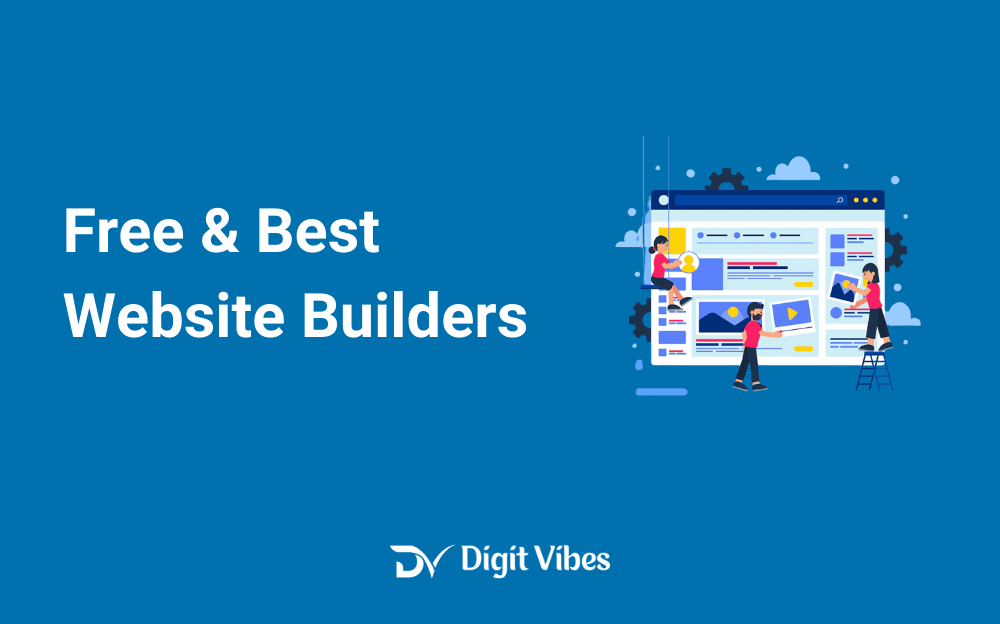
Creating a website has become easier than ever with free website builder tools. Whether you’re a beginner or a small business owner looking to create an online presence, these tools provide an easy, cost-effective way to get started. Here’s an in-depth look at 8 free website builders, including their key features, advantages, drawbacks, and pricing details.
Best 8 Free Website Builder:
Here’s a simplified table of the free website builder tools:
| Website Builder | Key Features | Pros | Cons | Pricing |
|---|---|---|---|---|
| WordPress.com | CMS, themes, plugins, SEO tools | Customizable, great for blogging | Ads on free plan, limited customization | Free plan; paid plans from $4/month |
| Wix | Drag-and-drop, templates, app market, SEO tools | Easy to use, highly customizable | Ads on free plan, limited storage | Free plan; paid plans from $14/month |
| Weebly | Drag-and-drop, e-commerce, mobile app | Beginner-friendly, e-commerce ready | Ads on free plan, limited customization | Free plan; paid plans from $6/month |
| Google Sites | Integrates with Google Workspace, simple interface | Completely free, no ads | Basic design, not for complex sites | Free plan with no ads |
| Webflow | Advanced design, animations, responsive, CMS | Highly customizable, no plugins needed | Steep learning curve, ads on free plan | Free plan; paid plans from $12/month |
| Jimdo | AI builder, responsive, SEO, e-commerce | Quick setup, mobile-friendly | Ads on free plan, limited customization | Free plan; paid plans from $9/month |
| GoDaddy | Guided setup, marketing tools, SSL, mobile templates | Easy to use, good for small businesses | Ads on free plan, limited customization | Free plan; paid plans from $6.99/month |
| Strikingly | One-page design, simple setup, e-commerce | Great for portfolios, user-friendly | Ads on free plan, limited features | Free plan; paid plans from $8/month |
Detailed Guide to Build Your Perfect Website
1. WordPress
WordPress.com is a versatile platform that is especially popular for blogging. It offers a robust content management system (CMS) and a wide range of customizable themes, making it suitable for both beginners and more experienced users who want to build a content-rich website.

Pros:
- Highly customizable with numerous themes and plugins.
- Great for blogging with strong content management features.
- Large community support and extensive resources.
Cons:
- Free plan has limited customization and includes WordPress ads.
- Many advanced features and custom domain options require a paid plan.
2. Wix
Wix is known for its easy-to-use drag-and-drop editor, which allows users to create highly customized websites without any coding skills. With hundreds of designer-made templates and a range of apps available, Wix is a great choice for creative professionals, small businesses, and anyone looking for a visually appealing website.

Pros:
- User-friendly drag-and-drop interface.
- A wide variety of templates and customization options.
- Built-in SEO and marketing tools.
Cons:
- Free plan includes Wix branding and ads.
- Limited storage and bandwidth on the free plan; upgrades needed for advanced features.
Also Check –Best Web Design Tools for Designers and Developers
3. Weebly
Weebly offers a straightforward drag-and-drop interface, making it ideal for beginners. It’s particularly good for small businesses and entrepreneurs, thanks to its built-in e-commerce features that allow users to sell products directly from their website.
Pros:
- Simple drag-and-drop interface, ideal for beginners.
- Good for e-commerce with built-in store features even on the free plan.
- Offers a mobile app for editing on the go.
Cons:
- Free plan comes with Weebly branding and ads.
- Limited design flexibility and customization options.
4. Google Sites
Google Sites is a free website builder that integrates seamlessly with Google Workspace tools like Google Drive and Google Docs. It’s perfect for creating simple websites or internal company pages and doesn’t show any ads.

Pros:
- Completely free with no hidden costs or ads.
- Easy integration with other Google services.
- Simple, collaborative editing capabilities.
Cons:
- Limited design and customization options.
- Not suitable for complex websites or e-commerce.
5. Web flow
Webflow combines the visual simplicity of a drag-and-drop builder with the power and flexibility of a professional design tool. It’s ideal for designers and developers who want full control over their website’s design without writing code.
Pros:
- Highly customizable with advanced design tools.
- Supports animations and interactions.
- Allows for exporting of code for further customization.
Cons:
- Steeper learning curve; not as beginner-friendly.
- Free plan includes Webflow branding and has limited features.
6. Jimdo
Jimdo is a user-friendly website builder that leverages AI to quickly create a personalized website based on your inputs. It features responsive design, ensuring your site looks great on mobile devices, and includes basic e-commerce tools even on its free plan. The platform also offers basic SEO options and built-in analytics to help track your site’s performance.

Pros:
- AI-assisted setup is quick and easy.
- Responsive design ensures websites are mobile-friendly.
- Basic e-commerce functionality included in the free plan.
Cons:
- Free plan includes Jimdo branding and ads.
- Fewer templates and customization options compared to other platforms.
7. GoDaddy Website Builder
GoDaddy Website Builder is a beginner-friendly platform with a guided setup process. It’s a good option for small businesses and individuals who want to create a professional website quickly and easily, with essential features like SEO tools and mobile-friendly templates.
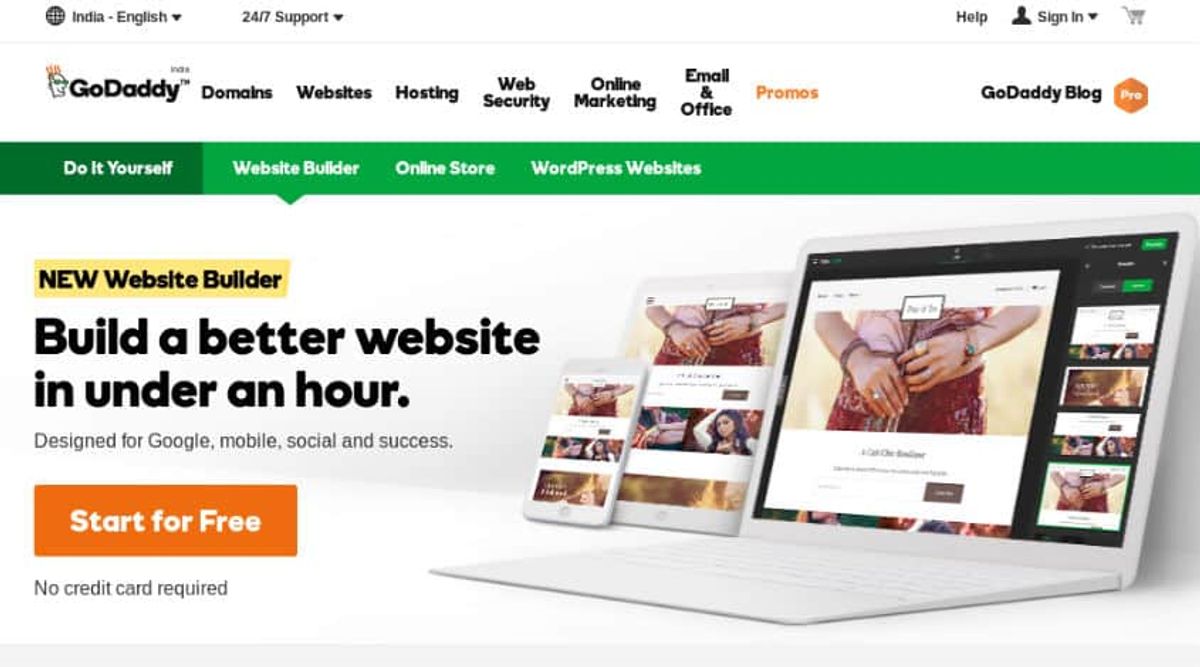
Pros:
- Easy to use, even for beginners.
- Good for small businesses with built-in marketing and SEO tools.
- Provides a free SSL certificate for added security.
Cons:
- Free plan comes with GoDaddy branding and limited customization options.
- To access advanced features, you’ll need to upgrade to a paid plan.
8. Strikingly
Strikingly is designed for creating simple, one-page websites, making it ideal for portfolios, personal sites, and small business landing pages. It offers a quick setup and easy-to-use interface, even including basic e-commerce features in the free plan.
Pros:
- Excellent for one-page websites and portfolios.
- User-friendly, with a simple setup process.
- Basic e-commerce features available on the free plan.
Cons:
- Free plan comes with Strikingly branding and ads.
- Limited scalability and customization for more complex websites.
Try the new Technique for Website SEO– How Website Performance Optimization Can Impact Your Website SEO
For SEO the best website builders are:
1. WordPress.com
- Pros: Extensive SEO plugins, advanced customization, and detailed SEO settings.
- Cons: Free plan has limited SEO features; some advanced SEO options require a paid plan.
2. Wix
- Pros: Built-in SEO tools, customizable meta tags, and site analysis features.
- Cons: Free plan includes ads; some advanced SEO features are only available on paid plans.
3. Web flow
- Pros: Advanced SEO controls, clean code, and built-in analytics.
- Cons: Steeper learning curve; free plan has Webflow branding.
4. Weebly
- Pros: Basic SEO tools included, user-friendly interface for SEO settings.
- Cons: Limited advanced SEO options on the free plan; more features require upgrading.
Conclusions
These free website builders provide a range of features to help you create a website tailored to your needs. Whether you’re looking to build a blog, an online store, or a personal portfolio, there’s a tool on this list that can help you get started without breaking the bank.
You can start with a free plan to see which platform suits your needs best and consider upgrading for more advanced features and a custom domain as your website grows. Happy website building!
FAQ: Free Website Builders
1. What is a website builder?
Ans. A tool that lets you create a website easily with pre-designed templates and drag-and-drop features.
2. Are free website builders really free?
Ans. Yes, but they often include ads or branding. Upgrading to a paid plan removes these and adds extra features.
3. What features do free website builders offer?
Ans. Templates, drag-and-drop editor, basic SEO tools, and hosting.
4. Can I remove ads and branding?
Ans. Yes, but you need to upgrade to a paid plan to remove ads and branding.
5. How do I choose the best website builder?
Ans. Consider ease of use, customization options, support, and required features.
6. Can I upgrade my free plan?
Ans. Yes, most builders allow you to upgrade to access more features and remove ads.
7. How do I connect a custom domain?
Ans. Upgrade to a paid plan, then you can add or connect a domain through the builder’s settings.
8. Are these website builders good for online stores?
Ans. Some offer basic e-commerce features for free; more advanced options require a paid plan.


